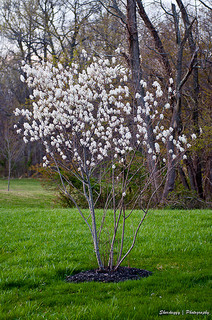 Some people have adult onset of allergy symptoms while others start to suffer with allergies at a young age. In “Spring Time Seasonal Allergies and Children,” Vincent Iannelli, M.D. writes about some common symptoms that indicate a child is suffering from allergies, including:
Some people have adult onset of allergy symptoms while others start to suffer with allergies at a young age. In “Spring Time Seasonal Allergies and Children,” Vincent Iannelli, M.D. writes about some common symptoms that indicate a child is suffering from allergies, including:
- Stuffy or runny nose
- Sneezing
- Itchy eyes and nose
- Sore throat
- Frequent throat clearing
- Coughing that is worse at night and better in the morning
Signs of allergies that you may not be aware of include:
- The 'allergic salute,' which is rubbing one's nose upwards because it itches. Iannelli indicates that "this practice can lead to small crease of skin on the lower part of the nose."
- Some children also get dark circles that appear under the eyes. Iannelli refers to these as 'allergic shiners' and notes that they can be attributed to nasal congestion.
What parents can do:
- Keep car windows closed
- Keep children inside when the pollen count is high
- Administer over-the coiner medicine for mild allergy issues
- Avoid overuse of antihistamines "since they can cause drowsiness and poor performance in school
You can consult your doctor about what whether or not your child needs medication and what kind you should give your child. Iannelli notes that for medicine to be effective in lessening the effects of spring allergies, you need to have your child start taking medication before your child’s allergy season starts. Year-round allergies will likely require that your child take medication throughout the year.
It is important to observe your child because, depending on the child, he or she may not complain of allergy symptoms until they get to be very bad. As a parent, you have to be patient with yourself as well because it may take more than one year for you to pinpoint just when your child starts to exhibit allergy symptoms.






